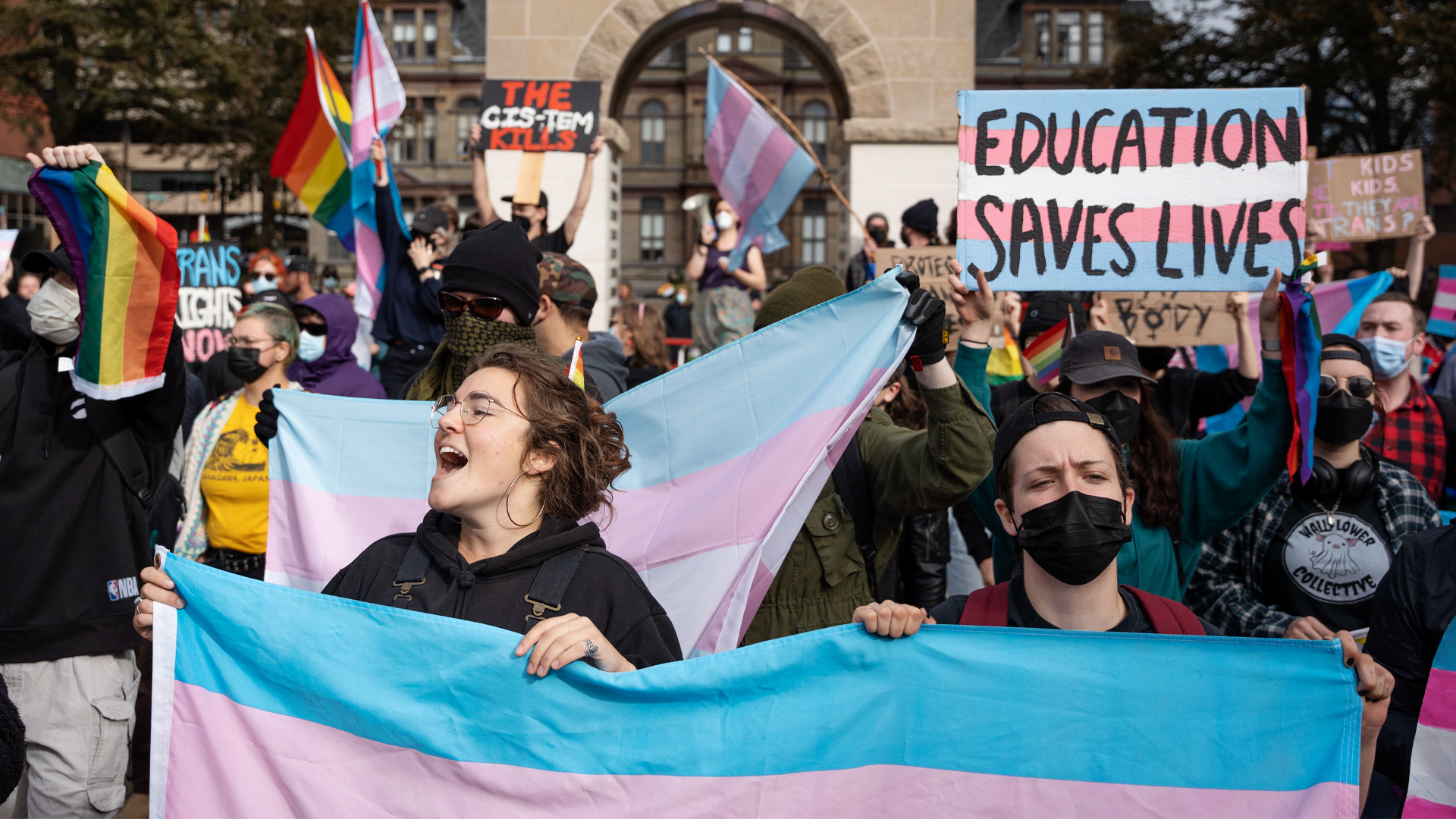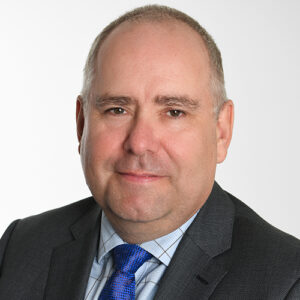
(Version française disponible ici)
Trans people are currently in the crosshairs of some Canadians who are following a pattern set in the United States: Extreme commentators and their political enablers distort and amplify anecdotes to depict trans people as a threat to our children, and other people follow along.
At the end of August in Quebec, it emerged that a trans teacher had asked to be called “mx” rather than “madame” or “monsieur.” Around the same time, it was reported that a school in northwestern Quebec was going to make its toilets co-ed during a renovation.
Large segments of social media reacted as if trans identity was a contagious disease, and schools were going to forcibly change children’s gender without their parents’ knowledge. Many in the province’s news commentariat followed.
Education Minister Bernard Drainville reacted by banning co-ed toilets. The fact that co-ed toilets already exist in many Quebec schools – and that there are even co-ed swimming pool changing rooms and co-ed bathrooms in hockey arenas – didn’t carry much weight. Nor did the mixed-gender washroom guidelines issued in 2021 by Mr. Drainville’s own ministry. When questioned, the minister said his ban relied on expertise gained through the intimate relationships of his private life.
The fire isn’t just burning in Quebec. On Sept. 20, demonstrations took place across the country where some parents’ groups, right-wing political activists and some members of religious communities found common ground to call for a crackdown on trans rights and, in some cases, spew hatred of trans, gay and other sexual minorities – sometimes through the mouths of their own children.
The country’s political leaders should be subtracting fuel from this overheated environment, not just by calling for calm, but by refusing to pander to extremists with harmful gestures that only embolden the intolerant.
Who needs to calm down?
Quebec Premier François Legault called for “calm on both sides” and said he understood “parents who are worried,” even if fretful people were only a small minority of a sample polled by the Angus Reid Institute.
Indeed, there are two groups that are feeling less calm these days. Trans people, who unwillingly serve as fuel for opponents including agitators, politicians and columnists, are understandably upset.
The other agitated group includes people who believe parents’ rights trump the rights of their children up to the age of majority, as well as fundamentalists who detest or fear those who do not fit their view that a man is a man, a woman a woman. Science shows even biological reality is more complex.
Our leaders must not yield, and Mr. Legault could have made that clear. Instead, he refused to rule out changing the rights of trans and non-binary people. And he reiterated his government’s position against unisex toilets.
Mr. Legault could have said that the fundamental rights of trans people are inalienable. Marwah Rizqy of the Quebec Liberal Party did. Mr. Legault could have said how vulnerable trans children are, how they suffer, and how they are eight times more likely to commit suicide, as Gabriel Nadeau-Dubois of Québec solidaire reminded people.
The National Assembly passed a motion condemning hate speech against the LGBTQ community, but once again the premier’s sensitivity to fundamental rights is lacking.
Perhaps it is because Mr. Legault fears being overtaken on his (social) right by the Parti Québécois or the Conservative Party of Quebec. Or perhaps he thinks the question of fundamental rights is an issue that, like others, interests only “intellectuals.” Or perhaps it is a bit of both.
The name of the party in power may be the Coalition avenir Québec, but it feels like we’re going back a few decades, as if sexual minorities in 2023 will once again have to fight for hard-won rights.
And in the ROC
Mr. Legault is not alone as he muses about restricting the rights of a vulnerable minority. Across the country, conservative parties have sensed the political winds as transgender and non-binary people – who constitute less than one per cent of the population – are becoming the collateral victims of a culture war imported from the United States.
How gender issues are taught and managed in school should be discussed rationally, preferably among educators and experts in the field with input from parents with their diverse views. This input should not constitute a veto, nor should it provoke knee-jerk reactions among political leaders.
Instead, on both sides of the border, these leaders claim “common sense” to justify targeting a vulnerable, tiny minority of citizens who have one modest request in a society governed by the rule of law: to be able to be themselves.
The first provincial assault on trans and non-binary gender rights occurred in June in New Brunswick. Under Conservative Premier Blaine Higgs, the province made it mandatory for teachers to obtain parental consent to use a student’s preferred pronouns and names when they are under the age of 16. The policy was described by the province’s child and youth advocate as “shoddy” and a violation of the Canadian Charter of Rights and Freedoms.
In Saskatchewan, Premier Scott Moe also imposed a policy forcing educators to inform parents when children request to change names and pronouns.
He has said he is prepared to use the notwithstanding clause in the Constitution to protect the regulation from a court challenge launched earlier this month. It’s the same tactic Mr. Legault used to protect his Bill 21 – the law banning religious forms of dress among some public servants – from being struck down by the courts for violating basic rights.
Ontario Premier Doug Ford has accused school boards of “indoctrinating” students about gender non-conformity, but he has so far stopped short of making it official policy.
Topping it all off, the Conservative Party of Canada, which could form the next federal government, passed resolutions at its recent national convention opposing gender-affirming care for youth, defining a woman as a “female person”— in order to exclude trans women – and endorsing a ban on hiring practices that favour marginalized populations.
The effect of all these measures – combined with recent protests held across the country under the banner of parental rights that sometimes veered into anti-LGBTQ territory – is to add to an already hostile environment toward trans people, who were one of the country’s most vulnerable minorities long before child pronouns became an overblown cause.
It bears repeating: trans children are five times more likely to have suicidal thoughts and eight times more likely to act on them. Social exclusion – the refusal to accept a person for who they are – can kill. Hate crimes related to sexual orientation are also on the rise, having more than doubled since 2018.
It needs to be stated loudly and clearly, by political leaders and parties at all levels, along with the commentators who influence readers, listeners and viewers: The state must not chip away at the basic rights of vulnerable people just because they are experiencing a moment of unwanted scrutiny by extreme, vocal actors. If recent history is any lesson, the forces targeting disadvantaged minorities will not stop here.










